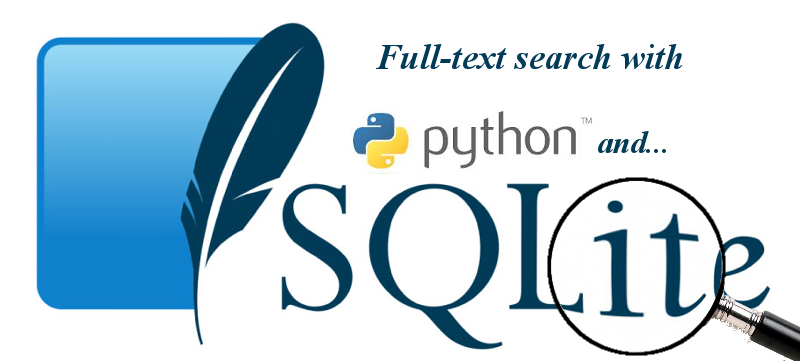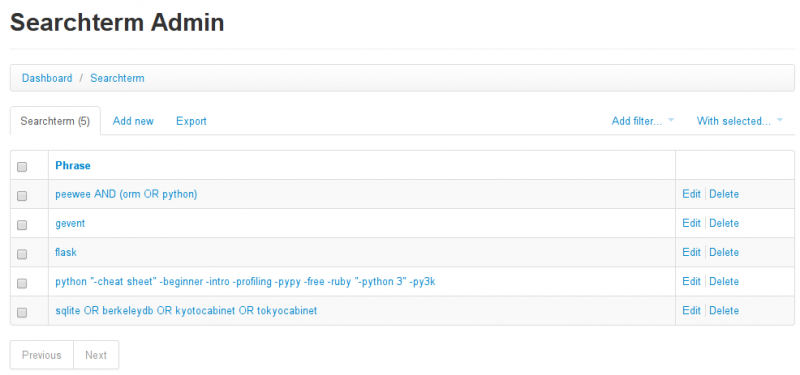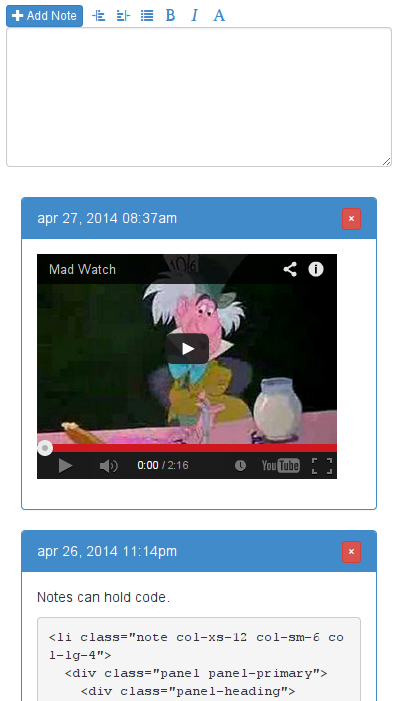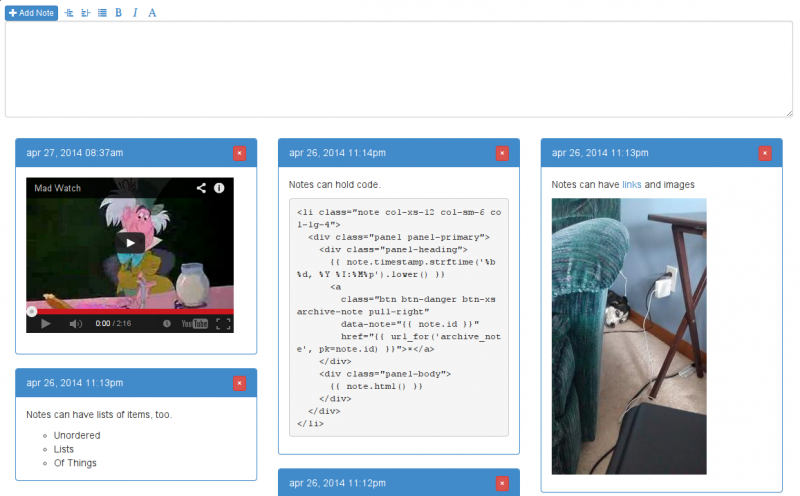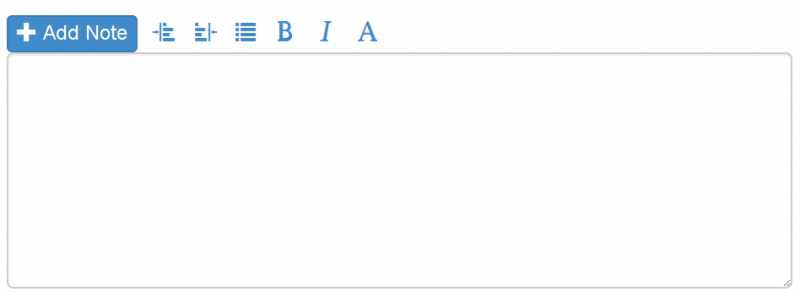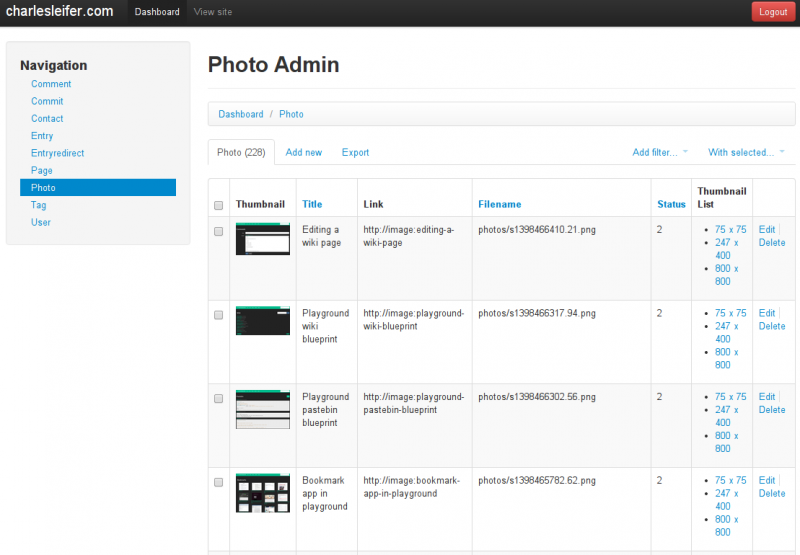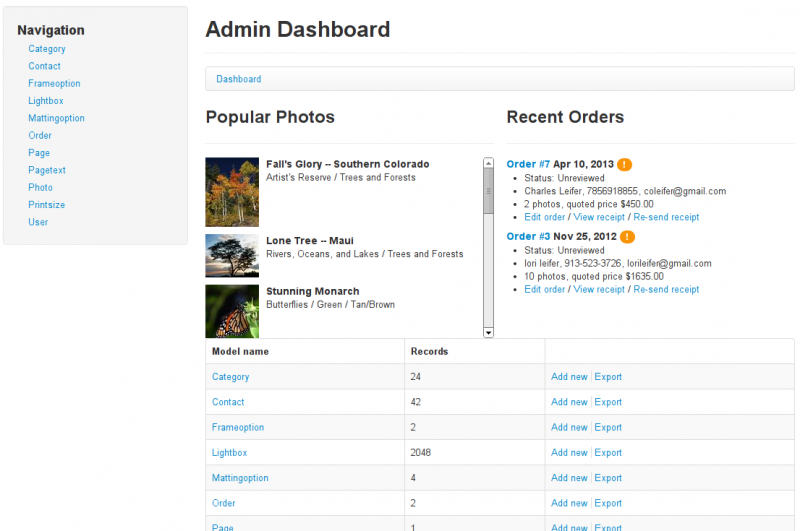Entries tagged with peewee
Using SQLite Full-Text Search with Python
In this post I will show how to use SQLite full-text search with Python (and a lot of help from peewee ORM). We will see how to index content for searching, and how to order search results using two ranking algorithms.
Last week I migrated my site from Postgresql to SQLite. I had been using Redis to power my site's search, but since SQLite has an awesome full-text search extension, I decided to give it a try. I am really pleased with the results, and being able to specify boolean search queries is an added plus. Here is a brief overview of the types of search queries SQLite supports:
- Simple phrase: peewee would return all docs containing the word peewee.
- Prefix queries: py* would return docs containing Python, pypi, etc.
- Quoted phrases: "sqlite extension"
NEAR: peewee NEAR sqlite would return docs containing the words peewee and sqlite with no more than10intervening words. You can also specify the max number of intervening words, e.g. peewee NEAR/3 sqlite.AND,OR,NOT: sqlite OR postgresql AND NOT mysql would return docs about high-quality databases (just trollin).
Check out the full post for details on adding full-text search to your project.
Saturday morning hack: personalized news digest with boolean query parser
Because I had so much fun writing my last Saturday morning hack, I thought I would share another little hack. I was thinking that I really enjoy my subscription to Python weekly and wouldn't it be great if I had a personal email digest containing just the types of things that interest me? I regularly cruise reddit and hacker hater news but in my opinion there's a pretty low signal-to-noise ratio. Occasionally I stumble on fascinating content and that's what keeps me coming back.
I wanted to write an app that would search the sites I read and automatically create an email digest based on search terms that I specified. I recently swapped my blog over to SQLite and I love that the SQLite full-text search extension lets you specify boolean queries. With that in mind, I decided that I would have a curated list of boolean search queries which would be used to filter content from the various sites I read. Any articles that match my search would then be emailed to me.
Here are some of my search terms, which I am viewing in the flask-peewee admin interface:
If you're interested in learning how to build your own version of this project, check out the rest of the post.
Migrating to SQLite
Small. Fast. Reliable. Choose any three.
I made the decision this week to migrate my personal sites and several other sites I host onto SQLite. Previously almost everything I hosted had been using Postgresql. The move was motivated by a couple factors:
- SQLite is awesome!
- Self-contained: does not require a separate server process
- Data is stored in a single file, simplifying backups
- Excellent Python (and peewee) support
- Full-text search
At times it has seemed to me that there is a tacit agreement within the Flask / Django communities that if you're using SQL you should be using Postgresql. Postgresql is an amazing piece of engineering. I have spent the last five years of my career working exclusively with it, and I am continually impressed by its performance and the constant stream of great new features.
So why change things?
Well, as my list indicates, there are a handful of reasons. But the primary reason was that I wanted something lightweight. I'm running a fairly low-traffic, read-heavy site, so Postgresql was definitely overkill. My blog is deployed on a VPS with very limited resources, so every MB of RAM counts. Additionally, I wasn't using any special Postgresql features so there was nothing holding me back.
(continued...)
Saturday morning hack: a little note-taking app with Flask
A couple Saturdays ago I spent the morning hacking together a note-taking app. I'm really pleased with the result, so I thought I'd share the code in case anyone else might find it useful.
The note-taking project idea came about out of necessity -- I wanted something that worked well from my phone. While I have a personal wiki site I've used for things like software installation notes or salsa recipes, I've also noticed that because it's so cumbersome to use from my phone, I often end up emailing things to myself. Plus a wiki implies a kind of permanence to the content, making it not a great fit for these impromptu notes. I also like to use markdown to format notes, but markdown isn't too easy on a phone because of the special characters or the need to indent blocks of text. With these considerations in mind, I set out to build a note-taking app that would be easy to use from my phone.
Here is how the app appears on a narrow screen like my phone:
And here it is on my laptop:
Because markdown is a bit difficult to use when you're not in a nice text editor like vim, I've added some simple toolbar buttons to the editor:
Read the full post for all the details!
The search for the missing link: what lies between SQL and Django's ORM?
I had the opportunity this week to write some fairly interesting SQL queries. I don't write "raw" SQL too often, so it was fun to use that part of my brain (by the way, does it bother anyone else when people call SQL "raw"?). At Counsyl we use Django for pretty much everything so naturally we also use the ORM. Every place I've worked there's a strong bias against using SQL when you've got an ORM on board, which makes sense -- if you choose a tool you should standardize on it if for no other reason than it makes maintenance easier.
So as I was saying, I had some pretty interesting queries to write and I struggled to think how to shoehorn them into Django's ORM. I've already written about some of the shortcomings of Django's ORM so I won't rehash those points. I'll just say that Django fell short and I found myself writing SQL. The queries I was working on joined models from very disparate parts of our codebase. The joins were on values that weren't necessarily foreign keys (think UUIDs) and this is something that Django just doesn't cope with. Additionally I was interested in aggregates on calculated values, and it seems like Django can only do aggregates on a single column.
As I was prototyping, I found several mistakes in my queries and decided to run them in the postgres shell before translating them into my code. I started to think that some of these errors could have been avoided if I could find an abstraction that sat between the ORM and a string of SQL. By leveraging the python interpreter, the obvious syntax errors could have been caught at module import time. By using composable data structures, methods I wrote that used similar table structures could have been more DRY. When I write less code, I think I generally write less bugs as well.
That got me started on my search for the "missing link" between SQL (represented as a string) and Django's ORM.
Structuring flask apps, a how-to for those coming from Django
The other day a friend of mine was trying out flask-peewee and he had some questions about the best way to structure his app to avoid triggering circular imports. For someone new to flask, this can be a bit of a puzzler, especially if you're coming from django which automatically imports your modules. In this post I'll walk through how I like to structure my flask apps to avoid circular imports. In my examples I'll be showing how to use "flask-peewee", but the same technique should be applicable for other flask plugins.
I'll walk through the modules I commonly use in my apps, then show how to tie them all together and provide a single entrypoint into your app.
Shortcomings in the Django ORM and a look at Peewee, a lightweight alternative
In this post I'd like to talk about some of the shortcomings of the Django ORM, the ways peewee approaches things differently, and how this resulted in peewee having an API that is both more consistent and more expressive.
Redesign of flask-peewee admin
Recently I stumbled across the twitter bootstrap project, which is a set of cross-browser compliant stylesheets and scripts. I liked them so much that I've ported the admin templates to use bootstrap. Here's a little screenshot of the design refresh taken from the example app:
I hope this will make the admin easier to work with in the long-run!
Integrating the flask microframework with the peewee ORM
I'd like to write a post about a project I've been working on for the past month or so. I've had a great time working on it and am excited to start putting it to use. The project is called flask-peewee -- it is a set of utilities that bridges the python microframework flask and the lightweight ORM peewee. It is packaged as a flask extension and comes with the following batteries included:
- Admin interface a-la django
- RESTful API toolkit a-la tastypie
- Authentication system
Peewee, a lightweight Python ORM - Original Post
For the past month or so I've been working on writing my own ORM in Python. The project grew out of a need for a lightweight persistence layer for use in Flask web apps. As I've grown so familiar with the Django ORM over the past year, many of the ideas in Peewee are analagous to the concepts in Django. My goal from the beginning has been to keep the implementation simple without sacrificing functionality, and to ultimately create something hackable that others might be able to read and contribute to.
